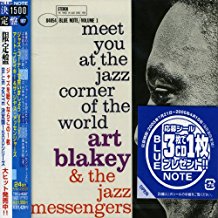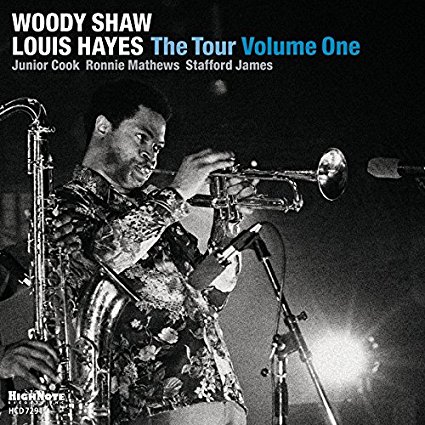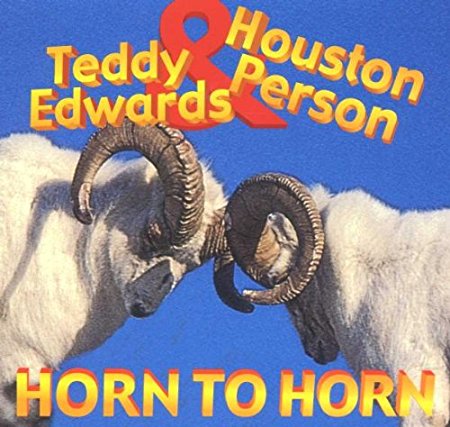-
Posts
13,205 -
Joined
-
Last visited
-
Donations
0.00 USD
Content Type
Profiles
Forums
Events
Blogs
Everything posted by Larry Kart
-
Don't have the Mosaic Columbia Small Group set so I can't comment on the tone/meaning of the Jacquet story, but looking at the index of "Lost Chords," the entries for the names of Black musicians are copious to say the least -- surely some of these numerous mentions allude to the influence/musical importance of these figures.
-
BTW, in the first post on this thread I quoted Loren Schoenberg to the effect that the late Richard Sudhalter's book "Lost Chords: White Musicians and Their Contribution to Jazz, 1915-1945" is marked by "race insanity" and is "suffused with a Riefenstahlian ... myopia." I couldn't disagree more. Sudhalter's book is a mine of valuable information, is full of shrewd balanced judgments, and is free of any trace of racism, as far as I can see.
-

Carla Bley in the New Yorker
Larry Kart replied to Brad's topic in Jazz In Print - Periodicals, Books, Newspapers, etc...
FWIW, a comment on the above from one Jeff Meshel (sorry for the duplication): You can watch this clip of Carla Bley and her partner Steve Swallow playing her composition ‘Lawns’, and witness as true an expression of love as can be made through music. I’ve watched this clip of ‘Lawns’ maybe 30 times in the last month. I mean, I really like it. She’s a character, a dynamo, hilarious and wacky and imposing. But she is first and foremost a singular composer of elusive, intriguing, beautiful songs. Her partner Steve Swallow eschewed the double bass for an electric bass in the late 1960s, a pioneering move for a progressive jazz musician. It’s true that the bass traditionally and by nature provides support for a lead instrument. And the fact that Carla is such a strong composer (and imposing figure) that she might seem to ‘wear the pants’ (jeez, you can probably get arrested today for using that phrase) in the relationship. But when you actually listen, you see that he more than holds his own. First of all, he’s more of an instrumentalist than Carla. She’s plays a songwriter’s piano. He is a full partner in making the music. It’s a voyeuristic experience, watching this couple making musical love. It’s not a Hollywood Barbie and Ken Get It On scene. It’s about real humans, serious and mature and wrinkled, and real love. This is what love at 60 should be. Not screaming and strutting or popping buttons and groaning. It’s the gentle, warm intimacy born of years of two very individual individuals living together, creating a world bigger than the sum of their own selves. It’s love. -
Sonny Clark and Paul Chambers on the title track are to die for.
-

Carla Bley in the New Yorker
Larry Kart replied to Brad's topic in Jazz In Print - Periodicals, Books, Newspapers, etc...
Maybe one step up from George Winston. -
For a possible Mozart opera "conversion" experience, I'd recommend this DVD: https://www.amazon.com/Mozart-Barenboim-Roschmann-Kammerloher-Chausson/dp/B0000TSRCY/ref=sr_1_1?s=movies-tv&ie=UTF8&qid=1526915258&sr=1-1&keywords=cosi+fan+tutte+barenboim My favorite Mozart opera "story," very convincingly dramatized (with subtitles) in modern but not obtrusively modern dress, excellently sung, acted, and played.
- 13 replies
-
- die walküre
- ;ive
-
(and 1 more)
Tagged with:
-
I have one in mind but very vaguely in mind. If it happens, it will be a series of real-life tales, with some names altered (and some circumstances might need to be slightly disguised) -- most of them (i.e. the tales) about how musicians and non-musicians/fans relate to the music and to each other, all of the tales taking off from things I witnessed/participated in. Some of the tales will be amusing, I hope, others on the sad and/or strange side. Don't know if I have enough material (some of it has to do with musicians we all know -- e.g. Thad Jones, Coleman Hawkins -- some with musicians or fans no one or almost no one knows. And while I'm pretty certain I can deal with writing about things that might be embarrassing to myself, I'm not at all sure how, in a few cases, to deal with my wish not to embarrass more or less innocent others and still leave enough meat on the bone. If, say, Stanley Crouch is a target in passing, OK, but I don't want to make a friend who goes back to junior-high days feel bad, even though the pieces of his behavior that I have in mind are at the center of one of the better, more peculiar and, I think, more revealing tales I want to tell.
-
Thanks
-
Thanks all!
-
I have that Kikoski album and like the whole thing, but I wouldn't say that this piece is contemporary pop material -- in terms of time, familiarity on the part of today's mass audience, or in its original musical nature. Also, I think Kikoski and friends just found it musically attractive and part of their own musical/social background; they weren't trying to reach out/win over anyone that much if at all.
-
Again, though -- and I'm no expert on the contemporary pop scene -- do those "compositions I know" on today's scene, while of course recognizable by today's audience, leave much room for meaningful musical expression/variation on the part of musicians and/or much room for expression/variation that will be found meaningful/attractive (beyond the point of some sense of familiarity or we're being flattered) by the mass pop audience one is reaching out to. Surely, this sort of thing will work only when results are as compelling, and will be regarded as such, as the original already widely popular pieces that are out there and that one is trying to work variations on.
-
Surely one test -- perhaps THE test -- is whether musicians want to play, feel they have something meaningful to say on or about GAS standards and whether they feel they have something meaningful to say on or about popular music of the present day. If they don't in the latter case, I would think that the issue of reaching out to today's more or less non-jazz audience hardly matters because what that "reach out" will consist of probably will not matter much if at all to both the musicians and their would-be audience. If the musicians do feel otherwise, we shall see. A related question that I'm sure has come up before is how much contemporary popular music is open to that much variation of the sort that jazz of some/any sort usually involves. I'm no expert, but in much contemporary popular music, isn't the version that is out there -- performed/recorded and often fairly well shaped by a good deal of studio production elements -- then felt to be THE piece or THE thing more or less?
-
Unexpectedly, I found the Shaw-Hayes band to be in rather tense, unsettled form here, with the exception of Ronnie Matthews and some of Hayes' solo work. I know that Stafford James' was a longtime Shaw associate, but his sense of of where "one" is seems very pushy to me. Was this a happy band? I get the feeling that it might not have been. By contrast, the wholeness of the "message" of the 1960 Messengers was striking.
-
Listened to it all now. Excellent. Each track is "for" a different tenor giant -- Coltrane, Ben Webster, Lester Young, Stan Getz, Coleman Hawkins, Gene Ammons, Dexter Gordon, Lockjaw. Edwards' angular solo on "The Girl From Ipanema" is a particular delight.
-
Just picked this up. Sounded damn good in the car. Fine rhythm section -- (Kenny Washington, Peter Washington, Richard Wyands, who just sparkles), RVG sound, and Person and Edwards are in excellent form.
-

What Classical Music Are You Listening To?
Larry Kart replied to StarThrower's topic in Classical Discussion
Fascinating works, excellent performances, a bargain price: https://www.amazon.com/Szymanowski-Symphonies-Harnasie-Mazurkas-Overture/dp/B0000CE7FZ/ref=sr_1_8?s=music&ie=UTF8&qid=1525473277&sr=1-8&keywords=szymanowski+symphonies -

Lennie Hambro The Complete Recordings from 1953-1957
Larry Kart replied to sgcim's topic in Re-issues
"Message from Hambro" ("from," not "to") is self-explanatory, I think -- a musical message from Hambro. Unless you think that Garcia's presence and the name of that Garcia album means that it must be a play on "Message from Garcia," but if so, what would be the point? We'll probably never know for sure, but my guess is that the passing similarity of the album titles was just an accident. BTW, do you know this album? https://www.amazon.com/Fourmost-Guitars-Jimmy-Raney/dp/B001UVSMTO Used to have a copy but can't find it now -- can't believe I ever let it out of my hands. -

Lennie Hambro The Complete Recordings from 1953-1957
Larry Kart replied to sgcim's topic in Re-issues
"Message from Garcia" is a play on the title of the once-famous essay "A Message To Garcia": https://en.wikipedia.org/wiki/A_Message_to_Garcia -
She plays great on Oliver Nelson's "Afro-American Sketches"and has to deal with one of the worst pianos ever on the Argo album that's in Mosaic's Nelson box.
-
Woods' solo on Quincy Jones's recording of "A Sleepin' Bee" -- Mingus bass, Art Farmer trumpet. Woods' solo on "Walkin'" from the same album is another gem -- a virtual composition in itself.
-
I know I'm in a minority on latter-day Woods; I wouldn't have gone on like this otherwise -- although I do know other people, veteran listeners and some musicians, too, who feel much the same way about latter-day Woods as I do. That doesn't make us right, any more than the testimony of your sax player colleague and the other professional admirers of Woods you've cited makes me nuts. Again, see Ellington on Jelly Roll Morton. And I do know when Woods played with Nelson, McFarland, LeGrand et al. BTW, do you agree with me, in accord with what you quoted from Doug Ramsey, that Woods underwent/embarked upon a significant style change/shift c. '57-58? If so, how would you characterize his earlier style, of which a good deal of recorded evidence exists, and what do you think of it? I find virtues in that earlier style -- I wouldn't call it "relaxed" but rather exceptionally lucid and shapely, kind of cross between Bird and Benny Carter and uniquely so (hear Woods' exceptional song-in-itself solo on "A Sleepin' Bee" from Quincy Jones' "This Is How I Feel About Jazz") -- that I no longer find much if at all in latter-day Woods, except in some ballad performances. In any case, perhaps we should call a halt to this now.
-
I, too, am an admirer of Doug Ramsey's writing, and I respect your views as well, but I don't take Ramsey's views or yours re: pre-'57-8 Woods versus post-'57-8 Woods as gospel, especially because my responses to pre-'57-8 Woods and latter-day Woods are not only divergent but also were FWIW the responses that I had to his playing during those very years -- having been an admirer of Woods from his first New Jazz recordings up through the likes of the Herbie Mann album Ramsey speaks of (I think Woods the soloist may have reached a peak on Quincy Jones' "This Is How I Feel About Jazz"). But after a certain point (the "A Night at the Half Note" album from '59 that he shares with Zoot Sims and Al Cohn would be a good example), while Woods always remained a formidable executant and a topnotch section leader when placed in that role, for me his solo work often came to be marked by a rather jazzy "hotness" -- this by contrast with the almost Benny Carter-like shapeliness of much of his pre-'57-'58 solo work. Also, again IMO, while obviously indebted to Bird in some respects, pre-'57-8 Woods was nowhere near as Parker-like as any number of his contemporaries were, e.g. his friend and frequent musical partner Gene Quill. BTW, I believe that all of Woods' recordings with the Gillespie band were made in June 1956, before the shift in his style that I have in mind took place. Yes, Oliver Nelson admired Woods' playing and stuck to his guns on him when threatened. But while that story is a testament to Nelson's character, I don't see why it should in itself change my view of latter-day Woods. Does the fact that Duke Ellington disparaged the music of Jelly Roll Morton render Morton's music valueless? About to turn 76, and with some 64 years of listening behind me, I'll have to trust myself here. P.S. A story I'm sure I've told before. At some point in the 1980s Woods' then-current quartet came to Rick's Cafe Americain in Chicago. Braced for the sort of jazz carnival performance I'd come to expect from him, I heard instead some of most relaxed and lucid music I'd encountered from Woods in many years. Boy, I thought -- a real breakthrough. Then, after the first set, Woods explained to the crowd that the band had been the victim of several delayed flights that had left them sleep-deprived and pretty much exhausted, but we should all stick around because they were going to get it together. The second set was all bells and whistles.
-
Ver Planck not only admired Bill Harris; Harris himself plays very well on several of these albums. Also, I don't agree that Phil Woods pre-'57-'58 was "just another Bird imitator"; rather, while his initial fondness for Parker was undeniable, he worked out almost from the first a quite personal style that owed less to Parker than did most other altoists of the time who had paid due attention to Bird. Further, I'm one of those semi-pariahs (in some quarters) who think that the change in Woods' style that undeniably began to take place c. '58-59 was not for the best.
-
A hour's worth, don't miss it.
_forumlogo.png.a607ef20a6e0c299ab2aa6443aa1f32e.png)





